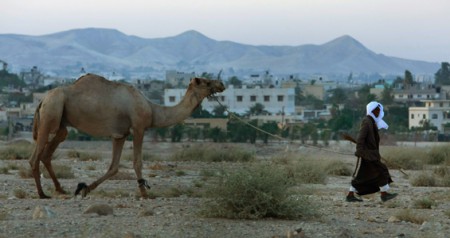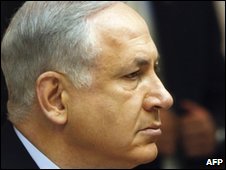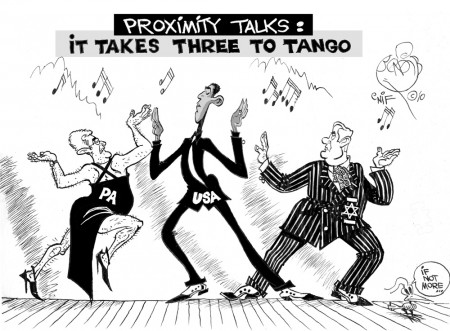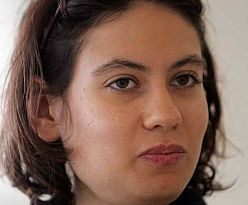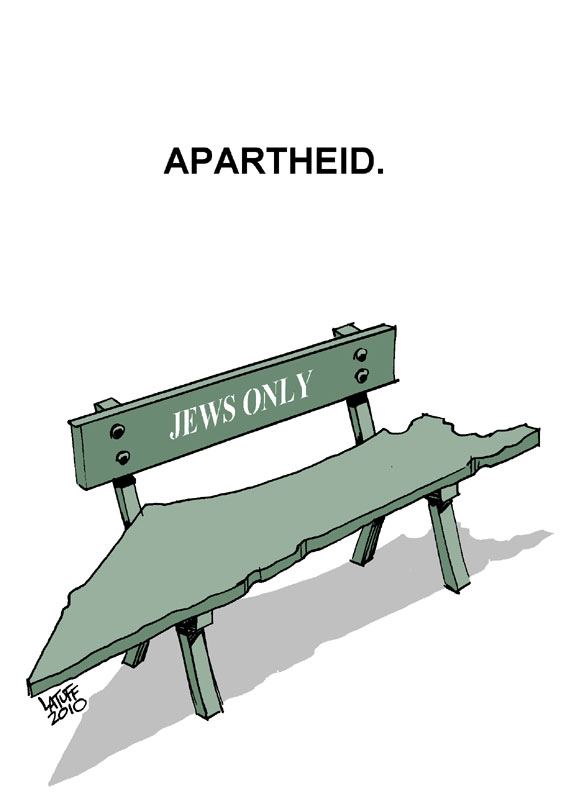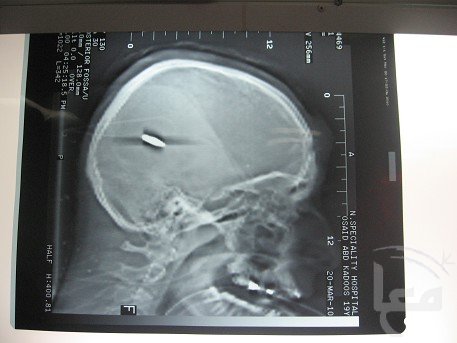In unprecedented ruling, court lets Israeli Arab visit an enemy state: Haaretz
The High Court of Justice on Tuesday granted permission for Israeli Arab writer Ala Halihal to visit Beirut, despite opposition from Prime Minister Benjamin Netanyahu and Interior Minister Eli Yishai.
Generally, it is forbidden for Israeli citizens to visit Lebanon, considered by Israel to be an enemy state. According to the petitioners, this High Court decision marks the “first time since 1948 that an Israeli citizen is permitted to visit a state defined as an enemy state.”
In their decision, the justices said that the there is no existing information to negate the petitioner’s claim, adding that in their refusal to approve his travel, the authorities did not weigh all the relevant considerations in this unique case, the ruling said.
The court ruled after Netanyahu on Monday refused to allow Halihal to attend an international conference of Arab authors in Beirut. The court had asked Netanyahu for his response to Halihal’s petition requesting to overturn Yishai’s refusal to allow him to travel to Beirut.
Halihal’s petition was submitted by the Adalah Legal Center for Arab Minority Rights in Israel. The attorneys argued that the government’s refusal to allow Halihal to travel violates his constitutional right to leave the country and his rights for freedom of employment and freedom of expression, as well as his due process rights for a fair hearing.
The petition was submitted by Adalah Attorneys Haneen Naamnih and Hassan Jabareen.
Halihal on Monday traveled to London to await the Supreme Court’s ruling.
Halihal is a Palestinian Arab citizen of Israel. He was born in the village of Jish in the Galilee in the north and lives currently in Acre.
Sarkozy: Israel strike against Iran would be disastrous: Haaretz
French President Nicolas Sarkozy told the American news network CBS on Tuesday that an Israeli military attack against Iran would be “disastrous” and that Israel must understand that “we are determined to ensure its security.”
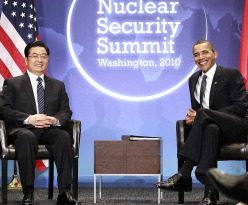
Hours before U.S. President Barack Obama opened a landmark summit of 47 nations on nuclear security in Washington, Sarkozy told CBS’s Katie Couric that “I would not want the world to wake up to a conflict between Israel and Iran, quite simply because the international community has been incapable of acting.”
“I consider the fact that Iran should get its hands on a nuclear weapon – a military nuclear weapon…dangerous and unacceptable. Unacceptable, quite simply. President Obama has wanted to stretch out his hand in order to show clearly to the Iranians that it was not they who were the target, but their leadership,” Sarkozy went on to say.
Advertisement
When asked whether he thought sanctions could really deter Iran from developing nuclear weapons, the French president replied that “I believe in the effect of sanctions, because I’ve been very impressed by the courage of the Iranian people. Those young kids, those women who went down into the streets of Tehran and major Iranian cities. What a fantastic example of courage they gave us…We can’t afford to be less courageous than they were.”
Following talks between Obama and Chinese President Hu Jintao, Obama’s top China adviser Jeffery Bader said that China shares U.S. concerns over Iran’s nuclear program, and that the country had agreed to direct its officials to work on a United Nations sanctions resolution against Tehran.
Bader added that Obama and Hu, meeting on the sidelines of the nuclear security summit, talked at length about Iran and discussed nuclear non-proliferation.
Obama stressed to Hu the need to act urgently against Iran’s nuclear program, and Hu agreed that Beijing would help craft a UN resolution, Bader said.
The White House had hoped the one-on-one meeting would help determine whether China was serious about moving forward with the United States, Britain, France, Russia and Germany in forging a new round of UN sanctions on Iran.
“The resolution will make clear to Iran the cost of pursuing a nuclear program that violates Iran’s obligations and responsibilities,” Bader told reporters after the meeting. “The Chinese are actively at the table in New York.”
Bader said the two presidents agreed that their delegations should work on a Security Council resolution on a new round of Iran sanctions “and that’s what we’re doing.”
Obama deputy national security adviser Ben Rhodes said the United States still expects a UN resolution by this spring.
Bader said Obama’s meeting with Hu “was a sign of international unity” on Iran. Western powers want to deter Iran from what they see as a drive to develop nuclear weapons, while Tehran insists its program has only peaceful, civilian purposes.
China, which holds veto power in the Security Council, had recently shown an increased willingness to pressure Iran while signaling it remained reluctant to take some of the toughest measures proposed by Washington and other Western powers.
Iran on Tuesday expressed doubts that China will back the U.S. and European drive for renewed sanctions.
Following the meeting, Chinese Foreign Ministry spokesman Ma Zhaoxu said that President Hu had told Obama in “positive and constructive” talks on Monday that Beijing wanted to resolve bilateral economic friction through consultations.
China and the United States also “share the same overall goal on the Iranian nuclear issue,” Ma said in a written statement after the two leaders met on the sidelines of a nuclear security summit in Washington. Ma provided no details on the talks and repeated China’s standard call for “dialogue and negotiations” with Iran.
Speaking to reporters afterwards, Obama made no mention of his talks with Hu but said he expects the 47-nation summit to make progress toward locking down loose nuclear material.
“It’s impressive. I think it’s an indication of how deeply concerned everybody should be with the possibilities of nuclear traffic, and I think at the end of this we’re going to see some very specific, concrete actions that each nation is that will make the world a little bit safer,” Obama said.
Speaking to ABC’s Good Morning America on Monday, Russian President Dimitry Medvedev said that while he supported sanctions on Iran’s nuclear program he felt those sanctions should not harm the Iranian people.
On the subject of imitating new sanctions against Iran geared at forcing it to abandon its nuclear program, the Russian president said that “it’s not whether it’s a good thought or bad thought, I’m talking about something else.”
“The sanctions is a tricky thing which works seldomly. You yourself were busy with politics, and you know that sanctions is not without conditions,” Medvedev said, adding but sometimes you have to do that.”
“What kind of sanctions? We have spoken about that with President Obama yesterday. Sanctions should be effective and they should be smart,” the Russian President said.
“They should not lead to humanitarian catastrophe, and the whole Iranian community would start to hate the whole world. And we’re worried that there are a significant number of people which have radical opinions. Do we want that radical thought to be sent to the whole world?,” Medvedev said.
However, the Russian president did not rule sanctions altogether, saying that they “should be smart.”
“They should force or obligate the Iranian leadership to think about what’s next. What could sanctions be? It could be trade, arms trade. It could be other sanctions,” Medvedev said, adding that “sanctions should let the country understand that all who impose sanctions have the same opinion.”
Medvedev said that any new sanctions “should not be paralyzing. They should not cause suffering. Aren’t we in the 21st century? That’s why if we’re going to develop our cooperation in this direction we have a chance to succeed. Better would be to go without sanctions and achieve things politically.
Earlier Monday, Iranian President Mahmoud Ahmadinejad condemned Obama’s nuclear summit, calling it humiliating to humanity.
Israel warns citizens to leave Sinai amid terror fears: BBC
Tens of thousands of Israelis routinely holiday in the Sinai
Israel has issued an “urgent” warning to its citizens to leave Sinai in Egypt amid fears of a terrorist plot.
The prime minister’s office said it had “concrete evidence” that terrorists were planning to attempt to kidnap Israelis in the peninsula.
Israel took the unusual step of calling on families of the Israelis who are visiting Sinai to contact them.
It fears that Palestinian militants will transfer hostages to Gaza through tunnels under the border.
Leave immediately and return home
Israeli anti-terror office
The warning by Israel’s security agencies came after a rumour that an Israeli had been kidnapped in Sinai. The Israeli emergency service Zaka later said that rumour was untrue.
“According to concrete intelligence, we anticipate an immediate terror activity to kidnap an Israeli in Sinai,” Prime Minister Benjamin Netanyahu’s office said on Tuesday.
Tens of thousands of Israelis routinely take holidays in Sinai over the Passover holiday. Most have returned after the week-long festival.
A few hundred were reported to have remained.
Egyptian police have been searching Sinai for any missing Israelis but found no evidence that anyone was missing.
Past attacks
In unusually strong wording, the Israeli anti-terror office called on “all Israelis residing in Sinai to leave immediately and return home”.
Families of Israelis in the peninsula were urged to contact them and update them on the travel warning.
Israel’s anti-terror office has a standing travel advisory telling Israelis to stay out of the Sinai desert because of the threat of terror attacks.
In 2004, suicide bombers attacked Egypt’s Taba Hilton Hotel, just across the Israeli border, and several campsites popular with Israelis. Dozens of people were killed and hundreds wounded.
Israel controlled Sinai from its capture in the 1967 war until returning it to Egypt in 1982. The desert is just across the border, and its seaside resorts are popular with Israelis.
Sinai has been the scene of number of terrorist attacks, including bombings in the resort town of Sharm el-Sheikh in 2005 and Dahab in 2006, which killed dozens.

